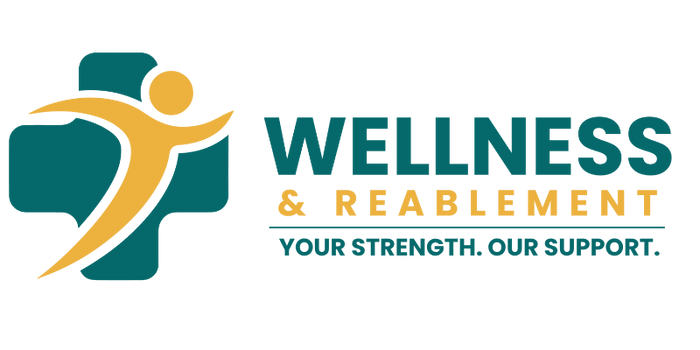Our Hiring Process
Our Safer Recruitment Hiring Process with PRISIM Model
At Wellness & Reablement, we are committed to upholding the ‘PRISIM model of safer employment,’ a comprehensive framework that integrates a safeguarding mindset into every stage of the employment journey. This approach aligns with Regulation 19(3)(a) of the Health and Social Care Act (Regulated Activities) Regulations 2014, demonstrating our dedication to ensuring the safety and well-being of the individuals our staff will provide care and support to.
Stage 1: Planning to Recruit (P)
Objective: Align recruitment with safeguarding principles
Safeguarding Elements
Risk Assessment
Identifying potential risks associated with the recruitment process, with a specific focus on safeguarding risks.
Job Role Analysis
Ensuring job roles align with safeguarding requirements and pose no risks to vulnerable individuals.
Policy Integration
Integrating safeguarding policies into recruitment planning, ensuring a safeguarding-oriented approach.
Transparent Communication
Clearly communicating the organization’s commitment to safeguarding principles.
Collaborative Planning
Involving all relevant stakeholders to ensure a comprehensive approach to safeguarding in the recruitment process.
Legal Compliance
Ensuring all planning aligns with relevant legal and regulatory safeguarding requirements.
Stage 2: Recruiting & Vetting (R)
Objective: Rigorous vetting aligned with pertinent regulations
Safeguarding Elements
Comprehensive Background Checks
Thorough criminal record checks and reference verifications to validate suitability and history of safe conduct.
Behavioural Interviews
In-depth interviews to assess the candidate's attitude, beliefs, and behaviours towards safeguarding principles.
Qualification Verification
Confirming candidates' qualifications relevant to their roles to ensure they possess the necessary knowledge and competence for safe conduct.
Multi-Panel Vetting
Involving a panel of interviewers representing different aspects of the organization, including safeguarding, to ensure a comprehensive evaluation of candidates.
Policy Acknowledgment
Requiring candidates to acknowledge and sign off on safeguarding policies and codes of conduct as part of the application process.
Feedback from Previous Clients
Gathering feedback from previous clients or employers of the candidate to understand their history of safeguarding and adherence to policies in previous roles.
Stage 3: Induction & Probation (I)
Objective: Uphold high standards during induction and probation phases
Safeguarding Elements
Safeguarding Training
Providing specialised training during the induction phase, focusing on safeguarding policies, procedures, and the reporting structure.
Probationary Assessments
Including safeguarding-related assessments during the probation period to evaluate the candidate’s understanding and application of safeguarding principles.
Mentorship Program
Assigning a mentor to guide new hires, emphasising the importance of safeguarding and providing ongoing support during the early stages of employment.
Regular Performance Check-ins
Conducting regular performance reviews during the probation period, discussing adherence to safeguarding policies and identifying areas for improvement.
Stage 4: Supervising & Managing (S)
Objective: Ensure the highest standards of safeguarding through supervision and management
Safeguarding Elements
Regular Supervisory Meetings
Conducting frequent supervision meetings to address safeguarding concerns, reinforce policies, and provide guidance on handling challenging situations.
Incident Response Training
Training supervisors to effectively respond to safeguarding incidents, emphasizing reporting protocols and appropriate actions.
Encourage Open Communication
Fostering an environment where employees feel comfortable reporting safeguarding concerns to their supervisors without fear of repercussions.
Performance Evaluation Metrics
Integrating safeguarding adherence as a key metric in employee performance evaluations to emphasize its importance.
Multi-Level Reporting
Establishing a reporting structure that allows employees to report safeguarding concerns to higher levels of management if needed.
Promote Peer Accountability
Encouraging team members to hold each other accountable for adhering to safeguarding policies, creating a culture of mutual responsibility.
Stage 5: Identifying & Managing Concerns (I)
Objective: Foster a culture of openness and concern management
Safeguarding Elements
Anonymous Reporting Mechanism
Establishing an anonymous reporting system for safeguarding concerns to encourage reporting without fear of retribution.
Education on Reporting
Educating employees on how to recognize and report safeguarding concerns, emphasizing the importance of timely reporting.
Whistleblower Protection
Assuring employees that they are protected from retaliation if they report safeguarding concerns in good faith.
Transparent Investigation Process
Communicating a clear and transparent process for investigating reported concerns, keeping employees informed about the progress and outcomes.
Training for Managers
Providing training to managers on handling safeguarding concerns, including how to support individuals who report concerns and take appropriate action.
Continuous Improvement
Regularly reviewing the reporting mechanisms and processes, seeking employee feedback to enhance the system’s effectiveness and accessibility.
Stage 6: Managing Leavers & Referring Information (R)
Objective: Proper management and transition for exiting team members
Safeguarding Elements
Exit Interviews
Conducting comprehensive exit interviews that include questions related to safeguarding to gather feedback and insights for improvement.
Secure Data Handling
Ensuring that all personal and sensitive data is handled securely during the exit process, complying with data protection laws and safeguarding privacy.
Feedback Analysis
Analysing feedback from exiting team members to identify any trends or patterns related to safeguarding that may require organizational attention.
Referral Process
Establishing a clear process for referring exiting employees to appropriate authorities or organizations if safeguarding concerns are identified during the exit process.
Knowledge Transfer
Encouraging exiting employees to share knowledge about safeguarding practices with their successors to ensure continuity and awareness of critical policies.
Exit Documentation
Documenting the exit process, including any concerns related to safeguarding, to maintain a record and for potential future reference or investigation.
Our Safer Recruitment Hiring Process, guided by the PRISIM model, underscores the critical integration of safeguarding at every stage of the employment journey. Proactively addressing safeguarding elements and ensuring compliance with relevant regulations, we are committed to providing a safe and secure environment for both our employees and the healthcare settings they serve. This approach aligns with our organisational values and contributes to the overall quality and safety of the care provided within the healthcare industry as a staffing supply agency.
Inductions
Thorough Screening
Each member undergoes meticulous screening, tests, and a comprehensive safer recruitment process.
24/7 Services
Our healthcare professionals are at your service 24/7, every day of the week. Our unwavering dedication to exceptional service extends to our allocation consultants, who are ready to assist you around the clock, even on public holidays.
Exceptional Healthcare Professionals
Our dedicated workforce ensures clients receive the superior support they require, guaranteeing successful completion of duties.
